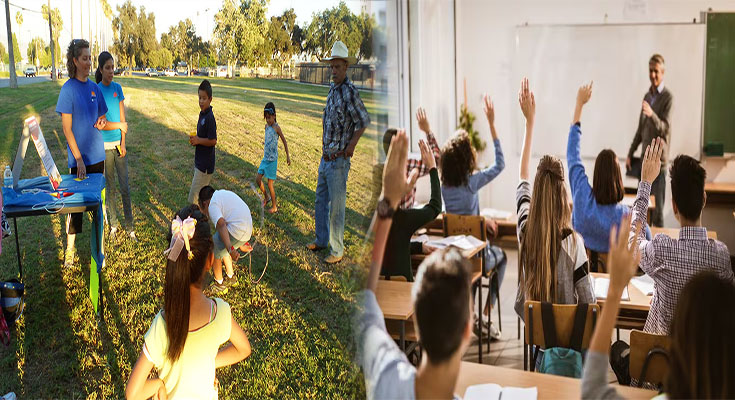Health education plays a vital role in promoting healthy habits, preventing illness, and empowering individuals to make informed decisions about their well-being. Both schools and communities serve as important platforms for delivering health education programs that aim to enhance knowledge, skills, and attitudes towards health-related issues. In this article, we will delve into some of the different types of health education programs that can be implemented in schools and communities to foster healthier lifestyles and improve overall health outcomes.
1. Comprehensive Sex Education Programs
Comprehensive sex education programs provide students with accurate, age-appropriate information about sexual health, relationships, and responsible decision-making. These programs go beyond discussing reproductive biology and address topics such as consent, contraception, sexually transmitted infections (STIs), and healthy relationships. By equipping young individuals with comprehensive knowledge and fostering open discussions, such programs can contribute to reducing teen pregnancies, promoting sexual health, and preventing the spread of STIs.
2. Substance Abuse Prevention Programs
Substance abuse prevention programs aim to educate individuals, particularly adolescents and young adults, about the risks of drug and alcohol abuse, as well as strategies for prevention and intervention. These programs provide information about the dangers of substance abuse, teach refusal skills, and promote healthy coping mechanisms. By raising awareness and building resilience, substance abuse prevention programs can help individuals make informed choices and lead healthier, drug-free lives.
3. Mental Health Awareness Programs
Mental health awareness programs strive to reduce stigma and promote mental well-being in schools and communities. These programs educate individuals about common mental health conditions, such as anxiety and depression, and provide tools and resources for coping effectively. By promoting early intervention and offering support, mental health education programs can help individuals recognize signs of distress, seek help, and access appropriate mental health services.
4. Nutrition and Healthy Eating Initiatives
Nutrition education programs focus on teaching individuals about the importance of a balanced diet and healthy eating habits. These programs provide information about food groups, portion sizes, and the impact of nutrition on overall health. They may also involve practical activities, such as cooking demonstrations and gardening, to encourage individuals to make healthy food choices and develop lifelong habits that promote well-being.
5. Physical Activity and Fitness Programs
Physical activity and fitness programs aim to instill the importance of an active lifestyle into individuals of all ages. These programs promote regular exercise, physical fitness, and the development of fundamental movement skills. By encouraging individuals to engage in physical activities they enjoy, such as sports, dance, or outdoor activities, these programs contribute to improved cardiovascular health, enhanced mental well-being, and the prevention of chronic diseases associated with sedentary lifestyles.
6. Healthy Relationships and Conflict Resolution Programs
Promoting healthy relationships and teaching conflict resolution skills is crucial in fostering positive social connections and preventing violence. These programs address topics such as communication, empathy, consent, and respectful relationships. By equipping individuals with effective strategies to manage conflicts and build healthy interpersonal connections, such programs contribute to creating safer and more inclusive school and community environments.
Health education is a powerful tool for empowering individuals to take charge of their own well-being and make informed choices about their health. By implementing a variety of health education programs in schools and communities, we can address a wide range of health-related issues and equip individuals with the knowledge, skills, and support they need to lead healthier lives. From comprehensive sex education to substance abuse prevention, mental health awareness, nutrition, physical activity, and healthy relationships, these programs promote holistic well-being and contribute to building healthier schools and communities for all.





